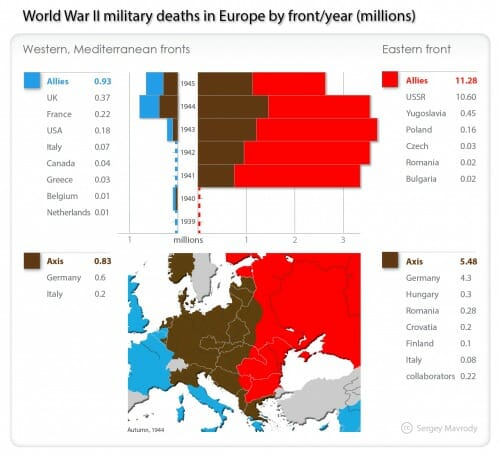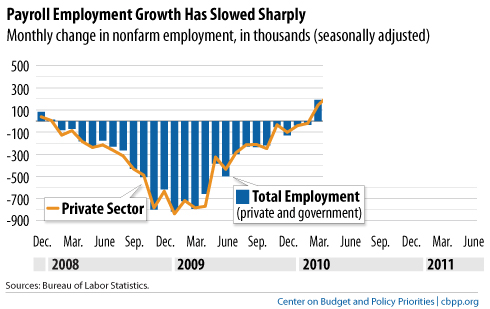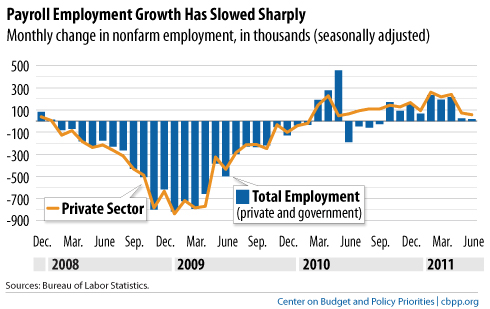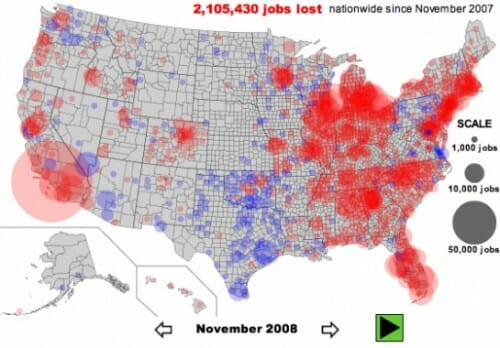Preface: Over the years, technocrats have always had a distaste for capitalism. Their desire has always been the curb to bottom-up disorder and inherent chaos of succesful capitalism with top-down order and control. In the early half of the 20th centruy, the leading economic argument against capitalism was technocratic-fascist: That capitalism and competition were wasteful and disorderly and should be replaced with a more orderly state control. The ultimate legislative result of this thinking was FDR's National Industrial Recovery Act, his emulation of Mussolini-style corporate fascism which was fortunately struck down by the Supreme Court.
While numerous large-scale failures of state economic control have mostly beaten back the technocratic argument, we can still see the fundamental failure of this approach in the last few weeks with the government's handling of the Katrina recovery:
A few days ago I had thoughts on top-down vs. bottom-up approaches to hurricane relief. After watching the relief effort over the last couple of days, I am more convinced than ever that part of the problem (but certainly not all of it) with the relief effort is the technocratic top-down "stay-in-control" focus of its leadership. Take stories like this:
Lots of
people including yours truly have volunteered to bring (including food,
generators, food, etc., to be self sufficient for a week or so) the most
important thing which is a boat but have been told NO under no uncertain terms.
"My" town is under water, people are in critical condition, and I have skill
sets and assets - including a boat which will come out of the hole in 14 inches
of water - and we are being denied the opportunity to help. And quite frankly,
that REALLY PISSES ME OFF.
And this:
A visibly angry Mayor Daley said the city had offered emergency,
medical and technical help to the federal government as early as Sunday
to assist people in the areas stricken by Hurricane Katrina, but as of
Friday, the only things the feds said they wanted was a single tank
truck.
[...]
Daley said the city offered 36 members of the firefighters' technical
rescue teams, eight emergency medical technicians, search-and-rescue
equipment, more than 100 police officers as well as police vehicles and
two boats, 29 clinical and 117 non-clinical health workers, a mobile
clinic and eight trained personnel, 140 Streets and Sanitation workers
and 29 trucks, plus other supplies. City personnel are willing to
operate self-sufficiently and would not depend on local authorities for
food, water, shelter and other supplies, he said.
While turning down offers to help, when everyone agrees not enough is being done, may seem unthinkable, these are actually predictable outcomes from a bureaucracy of technocrats. Technocrats value process over results, order and predictability over achievement. More important than having problems fixed is having an ordered process, having everything and everyone under control. In this context, you can imagine their revulsion at the thought of having private citizens running around on their own in the disaster area trying to help people. We don't know where they are! We don't know what they are doing! They are not part of our process! Its too chaotic! Its not under control!
Nearly everyone who is in government has a technocratic impulse - after all, if they believed that bottom up efforts by private citizens working on their own was the way to get things done, they would not be in government trying to override those efforts. But most emergency organizations are off the scale in this regard. 99% of their time, they don't actually have an emergency to deal with - they are planning. They are creating elaborate logistics plans and procedures and deployment plans. Planners, rather than people of action, gravitate to these organizations. So, once a disaster really hits, the planners run around in circles, hit by the dual problem of 1) their beautiful plans are now obsolete, since any good general can tell you that no plan ever survives first contact with the enemy and 2) they are by nature still planners, trying to get order and process underway and create a new updated plan, rather than just getting every possible resource out there fixing the dang problem.
The army has had to deal with this conundrum for years. How do you have soldiers who are good planners before a battle, but men of action and initiative once the battle is underway? How do you run a fundamentally top-down organization such that when it matters, individuals will take the initiative to do what needs to be done? Its a really hard problem.
Unfortunately, I fear that the lessons from this hurricane and its aftermath will be that we need more top-down rules and authority rather than less. It is the technocrats on the sidelines who are most appalled by the screw-ups, and will demand more of whatever next time.
Here is an example of what I think we should do instead. Let's accept that we can't plan for everything, can't have every resource stockpiled for an emergency, and that our biggest resource is our private citizenry. Let's provide rules of engagement for 3rd parties to come into the disaster area and help with minimum supervision. There might be different rules for trained rescue people and untrained private citizens. Here is an example of the type of thing that might work better:
Every private citizen with a boat larger than X and a draft less than Y who would like to help can bring their boat and three days food and clothing to such and such boat ramp. All municipal firefighters and rescue teams that want to help, come to such and such building, check in, and we will assign you a sector. Rescue crews need to bring their own food, equipment, and waterproof paint to mark the buildings you have searched. Then, go out to the boat ramp, find a boat and driver in the pool there, and go. FEMA will bring in a fuel truck to refuel boats and will indemnify all boat owners for damages. All survivors found should be brought back to the dock, and ambulances will be standing by.
Update: OK, I know some of you don't believe that this is a control issue for the bureaucrats. Well, here is more evidence, from the Red Cross web site, via Instapundit.
Hurricane Katrina: Why is the Red Cross not in New Orleans?
- Access
to New Orleans is controlled by the National Guard and local
authorities and while we are in constant contact with them, we simply
cannot enter New Orleans against their orders.
- The state Homeland Security Department had requested--and
continues to request--that the American Red Cross not come back into
New Orleans following the hurricane. Our presence would keep people
from evacuating and encourage others to come into the city.
Update #2: Still reluctant to believe that control over the process is more prized by bureaucrats than results? Try this, from CNN and via Instapundit:
Volunteer physicians are pouring in to
care for the sick, but red tape is keeping hundreds of others from
caring for Hurricane Katrina survivors while health problems rise.
Among
the doctors stymied from helping out are 100 surgeons and paramedics in
a state-of-the-art mobile hospital, developed with millions of tax
dollars for just such emergencies, marooned in rural Mississippi.
"The
bell was rung, the e-mails were sent off. ...We all got off work and
deployed," said one of the frustrated surgeons, Dr. Preston "Chip" Rich
of the University of North Carolina at Chapel Hill.
"We have
tried so hard to do the right thing. It took us 30 hours to get here,"
he said. That government officials can't straighten out the mess and
get them assigned to a relief effort now that they're just a few miles
away "is just mind-boggling," he said....
It travels in a convoy that includes
two 53-foot trailers, which as of Sunday afternoon was parked on a
gravel lot 70 miles north of New Orleans because Louisiana officials
for several days would not let them deploy to the flooded city, Rich
said....
As they talked with
Mississippi officials about prospects of helping out there, other
doctors complained that their offers of help also were turned away.
A
primary care physician from Ohio called and e-mailed the U.S.
Department of Health and Human Services after seeing a notice on the
American Medical Association's Web site about volunteer doctors being
needed.
An e-mail reply told him to watch CNN that night, where
U.S. Health and Human Services Secretary Michael Leavitt was to
announce a Web address for doctors to enter their names in a database.
"How crazy is that?" he complained in an e-mail to his daughter.
Dr.
Jeffrey Guy, a trauma surgeon at Vanderbilt University who has been in
contact with the mobile hospital doctors, told The Associated Press in
a telephone interview, "There are entire hospitals that are contacting
me, saying, 'We need to take on patients," ' but they can't get through
the bureaucracy.
"The crime of this story is, you've got millions
of dollars in assets and it's not deployed," he said. "We mount a
better response in a Third World country."
Update #3: Yes, there's more. The Salvation Army has also been blocked, and the reason? Their efforts did not fit snugly into the technocrats plans (via Cafe Hayek):
As federal officials tried to get some control over the deteriorating
situation in New Orleans, chaos was being replaced with bureaucratic rules that
inhibited private relief organizations' efforts.
"We've tried desperately to rescue 250 people trapped in a Salvation Army
facility. They've been trapped in there since the flood came in. Many are on
dialysis machines," said Maj. George Hood, national communications secretary for
the relief organization.
"Yesterday we rented big fan boats to pull them out and the National Guard
would not let us enter the city," he said. The reason: a new plan to evacuate
the embattled city grid by grid - and the Salvation Army's facility didn't fall
in the right grid that day, Hood said in a telephone interview from Jackson,
Miss.
"No, it doesn't make sense," he said.
Update #4: I can't help myself. Here is another:
The Fox News Channel's Major Garrett was just on my show extending the
story he had just reported on Brit Hume's show: The Red Cross is
confirming to Garrett that it had prepositioned water, food, blankets
and hygiene products for delivery to the Superdome and the Convention
Center in the immediate aftermath of the hurricane, but were blocked from delivering those supplies by orders of the Louisiana state government, which did not want to attract people to the Superdome and/or Convention Center.
Update #whatever-I-am-up-to: Welcome Instapundit readers! I have posted a follow-up on big government and disaster preparedness here.
Technorati Tags: Katrina, Economics





